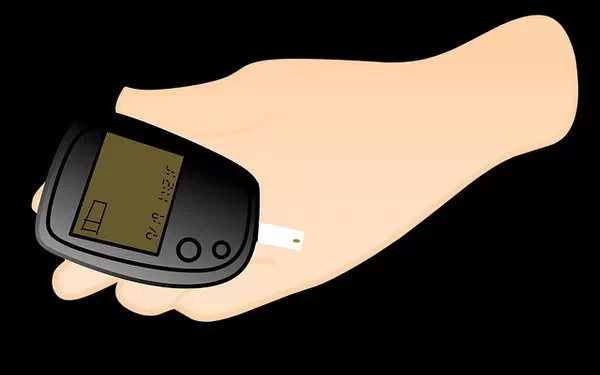Type 1 diabetes mellitus (T1DM) is a complex autoimmune disorder characterized by the destruction of insulin-producing beta cells in the pancreas. This condition affects millions worldwide, with significant implications for long-term health and quality of life. Understanding the causes of T1DM is crucial for advancing treatments and potentially preventing its onset. This article delves into the multifaceted nature of T1DM etiology, exploring genetic predispositions, environmental triggers, immunological factors, and current research directions.
Genetic Predisposition
Genetic susceptibility plays a pivotal role in the development of T1DM. Individuals with a family history of the condition have a higher risk of developing it themselves. The strongest genetic associations are linked to the human leukocyte antigen (HLA) complex, particularly the HLA class II genes (e.g., HLA-DR, HLA-DQ). These genes encode proteins involved in immune regulation and are crucial for presenting antigens to T cells. Variants in these genes can predispose individuals to autoimmune responses against pancreatic beta cells.
Apart from the HLA complex, numerous other genetic loci have been implicated in T1DM susceptibility through genome-wide association studies (GWAS). These studies have identified genes involved in immune function, beta cell development, and insulin signaling pathways. For instance, genes such as INS (insulin gene), PTPN22 (protein tyrosine phosphatase, non-receptor type 22), and CTLA4 (cytotoxic T-lymphocyte-associated protein 4) are known to influence immune tolerance and responsiveness, thus impacting T1DM risk.
Environmental Triggers
While genetic predisposition sets the stage for T1DM, environmental factors are believed to trigger the autoimmune process leading to beta cell destruction. The rise in T1DM incidence over recent decades suggests an environmental influence, given that genetic changes occur over generations rather than within decades.
Several environmental factors have been implicated as potential triggers, including viral infections, dietary factors, and early childhood exposures. Viruses such as enteroviruses (e.g., Coxsackievirus) have been studied extensively due to their ability to induce inflammation and trigger autoimmune responses. Epidemiological studies have shown correlations between viral infections and increased T1DM incidence, although causative mechanisms are still under investigation.
Dietary factors, particularly the timing of introduction to cow’s milk and gluten-containing foods in infancy, have been hypothesized to influence T1DM risk. Early exposure to complex dietary proteins might disrupt immune tolerance mechanisms, leading to autoimmune reactions against beta cells. However, the evidence remains inconclusive, and ongoing research aims to clarify these associations.
Immunological Mechanisms
The hallmark of T1DM pathogenesis is the autoimmune destruction of insulin-producing beta cells in the pancreatic islets of Langerhans. This process involves a complex interplay of immune cells and molecules that ultimately culminate in beta cell death and insulin deficiency.
Central to this autoimmune process are autoreactive T cells that recognize beta cell antigens presented in the context of HLA molecules. In genetically susceptible individuals, environmental triggers may activate these autoreactive T cells, leading to their infiltration into pancreatic islets. Once in the pancreas, these T cells release cytokines and chemokines that recruit and activate macrophages and other immune cells. This inflammatory milieu contributes to beta cell destruction through both direct cytotoxic effects and the activation of other immune effector mechanisms.
In addition to T cells, B cells also play a role in T1DM by producing autoantibodies against beta cell antigens such as insulin, glutamic acid decarboxylase (GAD), and insulinoma-associated antigen 2 (IA-2). These autoantibodies can serve as biomarkers for predicting T1DM onset before clinical symptoms appear, highlighting their diagnostic utility in at-risk populations.
Current Research and Therapeutic Strategies
Advances in understanding the causes of T1DM have paved the way for novel therapeutic strategies aimed at halting or reversing the autoimmune destruction of beta cells. Research efforts are focused on several fronts, including immunomodulatory therapies, beta cell regeneration, and interventions targeting environmental triggers.
Immunomodulatory therapies aim to restore immune tolerance and prevent the activation of autoreactive T cells. Approaches such as antigen-specific immunotherapy, regulatory T cell therapy, and monoclonal antibody therapy targeting pro-inflammatory cytokines (e.g., interleukin-1 and interleukin-6) are being explored in clinical trials. These therapies seek to dampen the autoimmune response while preserving overall immune function.
Beta cell regeneration strategies aim to restore functional beta cell mass in individuals with T1DM. Research into stem cell-based therapies, beta cell replacement therapies (e.g., pancreatic islet transplantation), and techniques to promote endogenous beta cell proliferation are promising but face challenges related to long-term efficacy and immune rejection.
Understanding and modifying environmental triggers also hold promise for T1DM prevention. Efforts to elucidate the role of viral infections, dietary factors, and the gut microbiome in T1DM pathogenesis are ongoing. Strategies such as vaccination against specific viruses and dietary interventions may help reduce T1DM incidence in at-risk populations.
See also: How to treat Type 1 Diabetes
Conclusion
Type 1 diabetes mellitus is a multifactorial autoimmune disease characterized by the selective destruction of pancreatic beta cells. Genetic predisposition, environmental triggers, and immunological mechanisms converge to initiate and perpetuate beta cell autoimmunity. Advances in genetics and immunology have deepened our understanding of T1DM etiology, enabling the development of targeted therapies aimed at preserving beta cell function and improving clinical outcomes.
As research continues to unravel the complexities of T1DM, the prospects for personalized medicine and preventive interventions are promising. Collaborative efforts among researchers, clinicians, and patients are essential to accelerate progress toward effective treatments and, ultimately, a cure for this challenging condition.
In conclusion, while the causes of T1DM are multifaceted and not yet fully elucidated, ongoing research offers hope for improved management and prevention strategies. By addressing genetic, environmental, and immunological factors, we can strive towards better outcomes and enhanced quality of life for individuals living with type 1 diabetes mellitus.
Related topics:



























